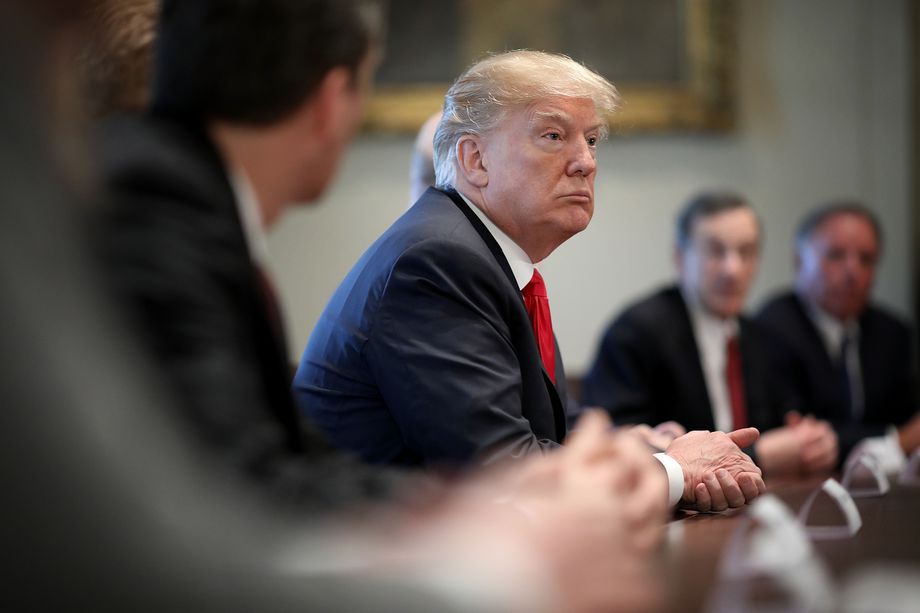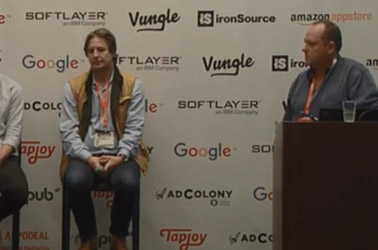
By Mona Ibrahim
I’m going to first state my personal opinion before we dive into this topic, which I will preface with “this does not reflect the views of my clients or my firm.” I consider any attempt to throw the First Amendment under the bus to make way for the Second reprehensible and a clear miscarriage of justice.
Second, I’m going to summarize this entire article with the following: Video games are protected under the First Amendment. The Supreme Court made this abundantly clear in the same year it made the individual right to gun ownership applicable to the states, and the decision was even penned by the same judge who authored the decision that made gun ownership an individual right in the first place. I’m not sure this qualifies as “irony” to anyone but me, but it should give you an idea of how unlikely it is that this decision will be overturned.
Now that that’s out of the way, let’s talk about Trump. Following the Stoneman Douglas shooting, his administration released a statement saying that Trump will meet with “members of the video game industry” to discuss gun violence. The video game industry is eager to get on board, as we generally are when it comes to this kind of thing. We’re devastated when something like this happens — we’re people, with families, friends and kids — so of course we want to help.
There’s only one problem: It doesn’t seem like anyone from the industry has heard a peep from this administration. The Entertainment Software Association has issued a statement saying that neither the organization nor its affiliated companies have received an invitation to Trump’s table. Clearly, it doesn’t look like he’s meeting anyone who is in the business of actually making video games.
So who is he going to meet?
My best guess would be the same people who caused him to reach his conclusion in this truly memorable sound bite. “I’m hearing more and more people say the level of violence on video games is really shaping young people’s thoughts,” Trump said. “And you go one further step and that’s the movies. […] Maybe they have to put a rating system for that.”
Ignoring the massive slight to the ESRB, which already rates games, we need look no further than the usual suspects if we want to identify a possible source for this information — your Dr. Craig Andersons, Jack Thompsons and various watchdog organizations that have been pushing states and the federal government to regulate the distribution of video games for decades, often regardless of the actual content of the game.
But for all of their propaganda, it is unlikely that any conversation that comes from this meeting will result in any change in our nation’s laws at this time, assuming we remain vigilant.
The Supreme Court held in Brown v. EMA, in a 7-2 decision penned by Justice Antonin Scalia, that video games are entitled to First Amendment protection. Specifically, the Supreme Court found that “a legislature cannot create new categories of unprotected speech simply by weighing the value of a particular category against its social costs and then punishing it if it fails the test,” and that “[t]his country has no tradition of specially restricting children’s access to depictions of violence.” Brown v. Entertainment Merchants Association, 564 U.S. 786 (2011) (in summary).
This holding has not precluded those who claim video game violence leads to actual violence from their crusade for more regulation, despite all of the evidence to the contrary and the Supreme Court’s determination that the evidence supporting their position is unpersuasive.
Supreme Court decisions have considerable weight as precedent, but they have been overturned in the past — or some lobbyist, lawyer or legislature will find a plausible exception or some other justification for the former ruling to not apply.
In other words, despite popular opinion, nothing the Supreme Court decides is actually set in stone. As a result, we’ve continued to see varying degrees of draconian regulation presented in state legislatures, and even at the federal level, where they really should know better. Lawsuits against the state are expensive.
Lawsuits against the federal government even more so. But who cares what your constituents have to pay if the special interest group asking you to present the bill is the same group that made a significant campaign contribution in your last election cycle? Right?
Fortunately, this very broken system of ours will probably work in the video game industry’s favor this time around. The lobbying arm of the game industry is a force to be reckoned with, and we have considerable support on Capitol Hill. We’re a multibillion-dollar industry, and we have as many politically savvy movers and shakers as any other self-regulated industry in the U.S. We defeat most such regulations on the floor and at the ballot box. When a regulation does get through, we fight it in litigation. No law giving the government control of games has survived the industry’s legal challenges to date.
And we win, and we will likely continue winning, because we are by and large an industry that believes in personal accountability and doing the right thing. We believe in doing what is best for our communities and our player base. We believe in doing more social good than harm, and we believe the good that video games provide society far outweighs any accusations to the contrary.
This process will likely go on indefinitely, as opinions continue to differ and money continues changing hands in the political arena. Blame shifting and trying to find a cause after a terrible tragedy is a natural response to grief. This is how people cope when there is no clear solution. However, I believe that as an industry we want to do everything we can to help. This does not mean relying on specious or outright fallacious “studies,” nor does it mean making fear-based decisions that hamper freedom of speech.
This means doing our part in our communities to educate and increase the quality of life of those around us. It means paying attention to the “troubled” kid and being a friend, instead of dismissing him as some weird guy who plays military RPGs and FPSs. It means reaching out to our player communities and offering a safe, supportive environment where we can collectively escape the day-to-day judgment and isolation we experience because we’re different. It’s giving people a place to go and place to belong.
And that goes so far to change the life of our players for the better — so much further than political pandering — that no matter how many times I hear the argument that “violent video games are bad for kids,” I will always say, “Games are a force of good. Play them sometime with your kid, or someone else’s kid, or play online with strangers. Don’t judge them, don’t criticize them; just try to understand where they’re coming from and why they play. Then ask them what’s really wrong, and come back and tell me games are the problem.”
https://www.polygon.com/2018/3/2/17070690/donald-trump-video-game-gun-violence
Mona Ibrahim is a Senior Associate at Interactive Entertainment Law Group. She is an avid gamer and
has dedicated her career to counseling the video game industry and indie development community.




0 Comments